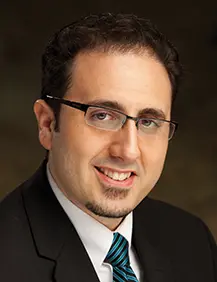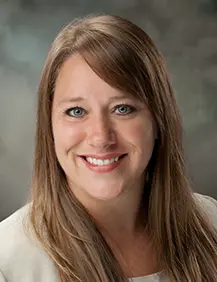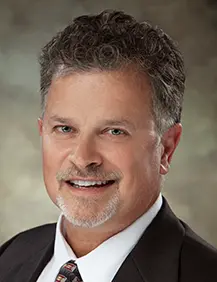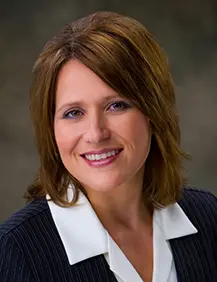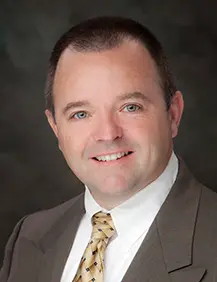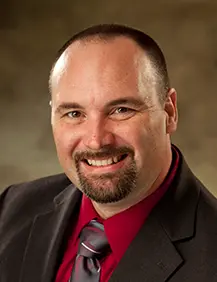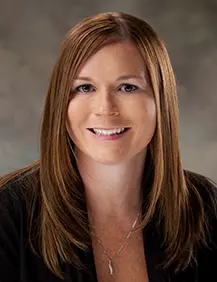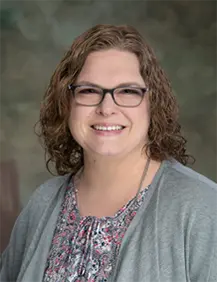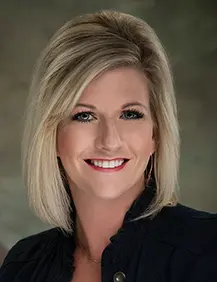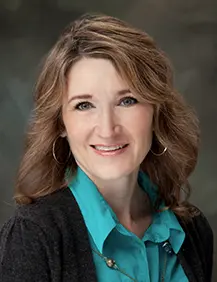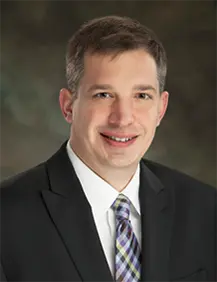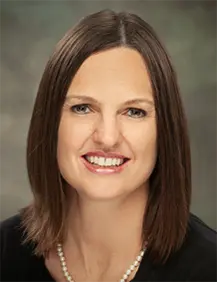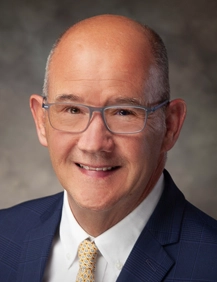
Pediatrics
Pediatric Services
CMH pediatric care services include:
- Pediatric care for children (infant to 18 years)
- Pediatric illness
- Pediatric immunizations
- Pediatric injury
- Chronic condition management (such as asthma, diabetes and allergies)
- Monitoring growth and progress
- Well-baby and well-child exams
The board certified pediatricians at the CMH Pediatric Clinic in Bolivar, Mo., have extra training in children’s health and medical needs. They have expert knowledge about growth, development and pediatric illnesses.
CMH’s primary care clinics also have family medicine doctors who provide pediatric care.
Pediatric Behavioral Health Services
CMH offers behavioral and psychological health services for children and teens, including counseling, a variety of play therapy approaches, and developmental and psychological testing. These services are designed to support emotional well-being, address behavioral or social concerns and provide families with guidance and care tailored to their child’s needs.
Parent-Child Interaction Therapy
Parent-Child Interaction Therapy is an evidence-based treatment for young children ages 2-7 with behavioral problems. PCIT is conducted through “coaching” sessions during which a therapist observes behavior between the caregiver and their child in a playroom. The therapist watches interactions through a one-way mirror, all while providing realtime coaching skills to the caregiver through an earpiece device. This therapy is especially effective for families dealing with ADHD, trauma, anxiety, or disruptive behaviors.
For more information on PCIT, or to schedule a consultation visit, call the CMH Pediatric Clinic at 417-777-2121.
- Improved relationships
- Increased attention span
- Increased pro-social behaviors
- More positive interactions
- Decreased problem behaviors
PCIT is appropriate for children who are between the ages of 2-7, and exhibit any of the following behavioral concerns:
- Difficulty in school, preschool or daycare
- Aggression toward parents, siblings or other children
- Refusing to follow directions
- Frequent temper tantrums
- Swearing
- Defiance
PCIT can also be beneficial to caregivers such as parents, foster parents, adoptive parents, legal guardians and residential caregiver staff.
PCIT is a very effective treatment backed by years of research. It involves two treatment phases with the help of a highly trained therapist:
Phase 1: Child-Directed Interaction
The first phase of PCIT teaches the skills that will help your child to:
- Calm down
- Enhance cooperation during learning
- Subdue anger
- Strengthen your already warm relationship
- Improve attention and focus
Phase 2: Parent-Directed Interaction
The second phase of PCIT involves learning specific discipline techniques to teach your child to:
- Follow direction
- Decrease problem behaviors
The average length of treatment typically varies between 12 and 20 sessions. Treatment length is subject to change and dependent upon each family’s specific needs. Some families complete treatment in fewer than 12 sessions. Other families take more than 20 sessions to meet treatment graduation requirements.
Many behavioral parent-training programs teach similar parenting skills, but PCIT is different from other programs because it:
- Emphasizes in-session parental practice of skills
- Provides parents with live coaching and feedback related to skills
- Ensures that caregivers master specific parenting skills
- Allows caregivers to rate children’s behavior problems as within normal limits before treatment graduation
Child-Parent Psychotherapy
Child-Parent Psychotherapy (CPP) is an evidence-based therapeutic approach designed for children ages birth through 5 who have experienced trauma, loss, or major stress. It focuses on strengthening the relationship between the child and their caregiver to support healthy emotional and developmental growth.
For more information on CPP or to schedule a consultation visit, call the CMH Pediatric Clinic at 417-777-2121.
- Strengthens emotional bonds between caregiver and child
- Reduces child behavior problems and trauma symptoms
- Improves caregiver confidence and mental health
- Builds a sense of safety, trust, and stability
- Helps families move forward together after difficult experiences
CPP is ideal for families facing exposure to domestic violence; abuse or neglect; traumatic events (e.g., accidents, loss of a loved one); separation, divorce, or caregiver stress; behavioral or emotional difficulties in young children. CPP can also be beneficial to caregivers, such as parents, foster parents, adoptive parents and legal guardians.
CPP is a very effective treatment backed by years of research. It involves three treatment phases with the help of a highly trained therapist:
Phase one: Initial Assessment and Engagement
The therapist meets with the caregiver to gather the child’s history, developmental background, and trauma exposure. Together, they explore how past experiences may affect the current relationship. Goals for therapy are created with the caregiver.
Phase two: Addressing Families’ Needs
Most sessions include both caregiver and child. The therapist observes and gently guides interactions to support attachment and emotional regulation. Play, storytelling, and talking about feelings help the child express themselves safely.
The therapist helps the caregiver understand the child’s behavior in the context of their experiences. When appropriate, the therapist and caregiver help the child make sense of traumatic events using age-appropriate language and play.
Caregivers learn to respond with empathy and consistency, reinforcing the child’s sense of security. The therapist also supports the caregiver in managing their own stress and recognizing emotional triggers. They build strategies for nurturing, discipline, and setting safe limits.
Phase three: Review and Plan for Future
The final phase reflects on the progress made and celebrates the changes made by families. The therapist helps the caregiver and child prepare for the end of therapy and reinforce what they’ve learned. Follow-up planning or referrals are provided if needed.
The average length of treatment typically varies between 20 to 32 one-hour sessions. Treatment length is subject to change and dependent upon each family’s specific needs. Some families complete treatment in fewer sessions, while other families take more sessions.
CPP is unique in several ways that set it apart from other forms of therapy for young children and families:
- Works through the caregiver-child relationship.
- Addresses how trauma and early stress impact brain development, behavior, and emotions.
- Designed for infants, toddlers, and preschoolers - birth through age 5.
- Uses play, language, and routines appropriate to the child’s age and understanding.
- Helps caregivers co-regulate with the child—building the child’s ability to manage emotions by first providing them with a safe, emotionally responsive relationship.
- Supports the family as a unit - supporting emotional needs of both children and their caregivers.
- Helps the child and caregiver talk about and make sense of traumatic experiences together.
Trauma-Focused Cognitive Behavioral Therapy
Trauma-Focused Cognitive Behavioral Therapy (TF-CBT) is an evidence-based treatment designed for children and teens ages 3–18 who have experienced trauma, loss, or significant stress. TF-CBT helps youth and their caregivers understand trauma, build healthy coping skills, and heal together. The treatment strengthens emotional well-being, supports healthy behavior, and improves communication between children and caregivers.
Schedule an Appointment
For more information on TF-CBT, or to schedule a consultation, call the CMH Pediatric Clinic at 417-777-2121.
- Reduces PTSD symptoms, anxiety, and depression
- Helps children safely process traumatic memories
- Improves emotional regulation and coping skills
- Strengthens caregiver support and parenting confidence
- Builds safety, trust, and stability at home
- Helps families move forward together after difficult experiences
TF-CBT is recommended for children, teens, and families who have experienced:
- Abuse or neglect
- Domestic or community violence
- Traumatic loss or grief
- Medical trauma
- Foster care placement or instability
- Frightening or life-threatening events
- Multiple or complex traumatic experiences
The approach is supportive of parents, caregivers, foster parents, adoptive parents, and legal guardians who want to better understand and support their child’s healing.
TF-CBT is provided by trained therapists and includes sessions with the child, sessions with the caregiver, and joint sessions when appropriate.
Treatment generally includes:
- Learning coping and calming skills
- Understanding thoughts, feelings, and behaviors
- Gradual, safe processing of traumatic memories
- Strengthening communication and emotional connection
- Helping caregivers respond with empathy and consistency
- Planning for safety and future success
Most families complete TF-CBT in 12–20 sessions, though treatment may be shorter or longer depending on needs. Sessions are typically once per week and last about 60 minutes.
TF-CBT stands out because it addresses both the child’s trauma symptoms and the caregiver’s needs. Treatment helps families understand how trauma affects thoughts, emotions, and behavior. The threapy uses a structured, step-by-step approach backed by strong research. It works for children as young as age 3 and throughout adolescence and uses age-appropriate tools such as play, drawings, and storytelling. The evidence-based treatment focuses on building resilience, communication, and long-term emotional health of individuals who take part in the therapy.
Providers
Locations

Ash Grove Family Medical Center
500 North Medical Drive, Ash Grove
Directions to Ash Grove Family Medical Center

Butterfield Park Medical Center
1300 North Oakland, Bolivar
Directions to Butterfield Park Medical Center
CMH OB/GYN & Pediatric Clinic
1195 North Oakland, Bolivar
Directions to CMH OB/GYN & Pediatric Clinic
Dade County Family Medical Center
105 North Grand, Suite 2, Greenfield
Directions to Dade County Family Medical Center
Dallas County Family Medical Center and Walk-In Clinic
201 South Ash, Buffalo
Directions to Dallas County Family Medical Center and Walk-In Clinic
El Dorado Springs Medical Center and Walk‑In Clinic
322 East Hospital Road, El Dorado Springs
Directions to El Dorado Springs Medical Center and Walk‑In Clinic
Humansville Family Medical Center
201 South Arthur, Humansville
Directions to Humansville Family Medical Center
Pleasant Hope Family Medical Center
209 South Main, Pleasant Hope
Directions to Pleasant Hope Family Medical Center
Southside Medical Center
1120 South Springfield Avenue, Bolivar
Directions to Southside Medical Center
Willard Medical Center and Walk‑In Clinic
502 S. Miller Road, Willard
Directions to Willard Medical Center and Walk‑In ClinicPatient Resources
CMH Patient Portal — Secure online access to your health information from your computer or smartphone.
Patient Rights — Your rights and responsibilities as a patient and consumer of our services.
Online Bill Pay — Secure online bill pay service gives you a safe and convenient option for paying your bill.
Patient Comments
All patient satisfaction ratings are submitted by actual patients and verified by an independent patient satisfaction company, National Research Corporation. National Research Corporation provides the technology to display ratings and comments on our provider profiles and practice pages.





